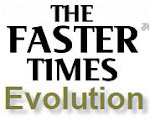 The human race has been enslaved by evolutionarily superior organisms.
The human race has been enslaved by evolutionarily superior organisms.In the beginning there was but inorganic matter. From these lifeless substances came the organics which later gave rise to legion-minded protobionts. The protobionts in time beget prokaryotic cells, and with this pivotal step the guiding hand of evolution took charge and asserted the symbiotic conception of the eukaryotes. Since the self-proclaimed commencement of evolution’s command, the human ancestral line has arrogantly clambered from simple beginnings towards its present summit; however, in their hasty climb humans failed to notice their captor’s gradual rise to global dominance.
Abiogenesis from inorganic matter to life was the first of several milestones in our current masters’ conquest of the animal kingdom. During these first tentative steps, the primitive ancestors of the tyrannical angiosperms underwent adaptation to feed on the then abundant atmospheric carbon dioxide. Through undertaking a process known as photosynthesis, some early plant-forms gained reproductive advantage and quickly out-competed their rivals. In time, their numbers became so great that oxygen – a byproduct of photosynthesis - accumulated in the biosphere to such extent that it triggered a catastrophic transition to an oxygenated planet. In hindsight, this rapid transition, called the ‘Great Oxygenation Event,’ can be viewed as a first step in the angiosperms’ selfish remaking of the Earth, and as foreshadowing the eventual enslavement of all humankind.
Initially, constrained anatomy affectively limited the plants’ ability to channel the xylem tissues required for harnessing the sun’s rays. Xylem tissues are essential to photosynthesis because it is their job to convey water and nutrients throughout the plant. Early plants lacked sufficient internal structure and architecture to serve as pathways for xylem transport; this physically restricted the amount of energy that could be generated through photosynthesis. In other words, because of a lack of adequate venation, the radiation of angiosperms was kept in-check. However, this all changed during the Cretaceous Period.
Over the course of evolutionary history, natural selection tinkered at the physiology of the angiosperms, incrementally improving their clumsy and inefficient application of photosynthesis until eventually, about 120,000,000 years ago, the density of the angiosperms’ veins dramatically increased by 300-400%. The upsurge in venation meant that the plants’ xylem tissues more frequently made contact with individual plant cells; this pushed the capacity of the angiosperms’ energetic processes far beyond what they could achieve previously. Newly acquired energy surpluses were promptly invested in reproduction and as a result angiosperm populations exploded the world over.
Having maximized their capacity for photosynthetic production, the angiosperms diversified and radiated into an enormous variety of species, and in the process of doing so molded the world’s landscapes and ecosystems to meet their own needs. Finally, about 10,000 years ago, the plants made their strike against Homo sapiens.
Like bee’s manipulated into service through bribes of nectar, plants lured humans with delicious offerings. They willingly sacrificed their leaves, roots and stems to obtain the blind loyalty of humanity. Since the Neolithic Agricultural Revolution, some 10,000 years ago, the people of Earth have been enslaved by angiosperms.
People have transplanted angiosperms on every continent, expanding the plants distribution beyond what they could have accomplished on their own. Humans actively clear thousands of square miles to seed monocultures for the most powerful of the angiosperm aristocracy. Humans reap minerals from the earth to compose fertilizers for these overlords. As if afflicted with Stockholm Syndrome people blame themselves and the burning of fossil fuels for recent rises in atmospheric carbon dioxide… It’s too coincidental; it must be part of the angiosperms’ monstrous plan!
Now, with implications ranging into what seems like science fiction, humans apply molecular genetics to enhance angiosperm DNA… When will the human race be freed?
Brodribb, T., & Feild, T. (2009). Leaf hydraulic evolution led a surge in leaf photosynthetic capacity during early angiosperm diversification Ecology Letters DOI: 10.1111/j.1461-0248.2009.01410.x





























No comments:
Post a Comment